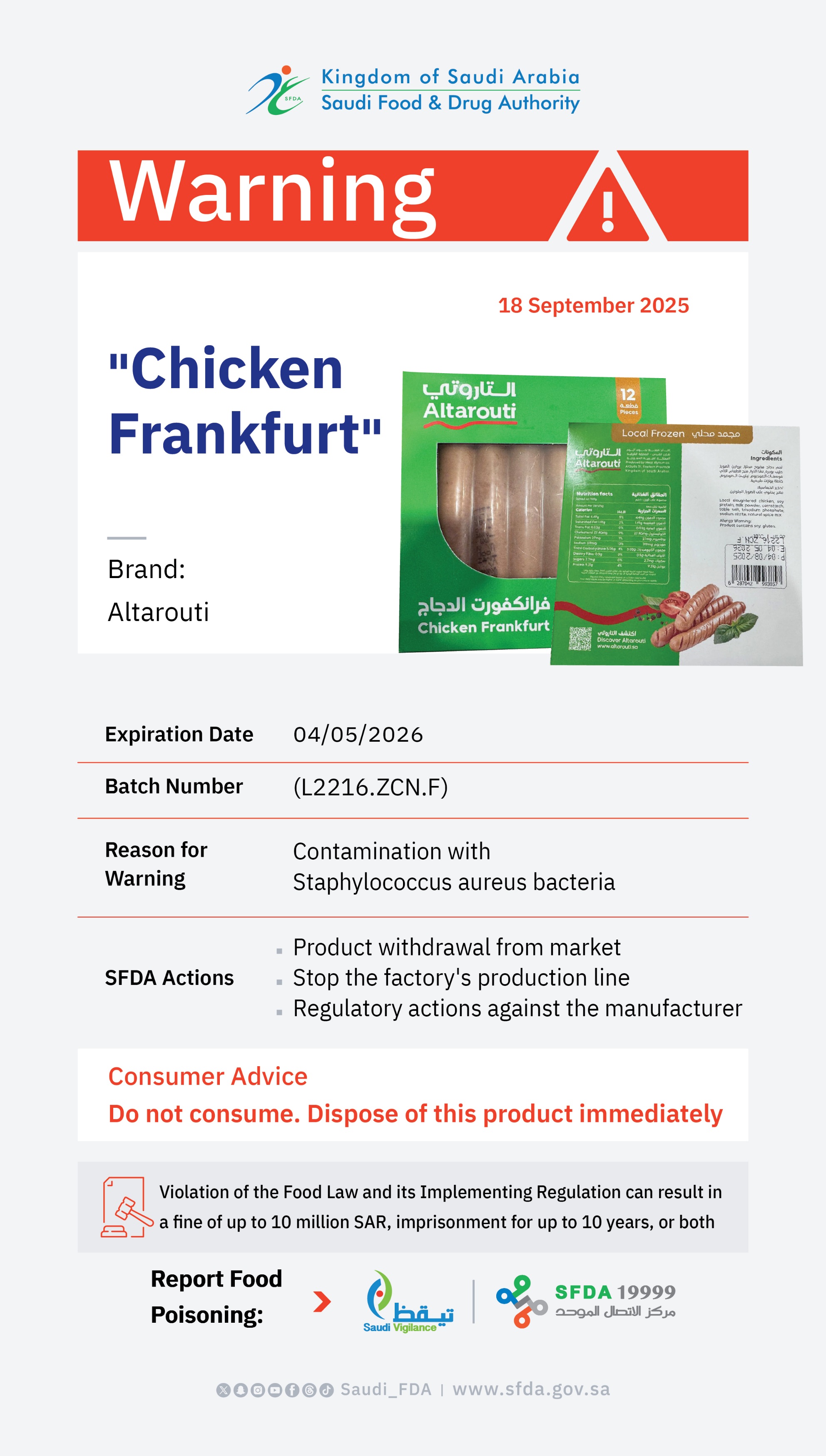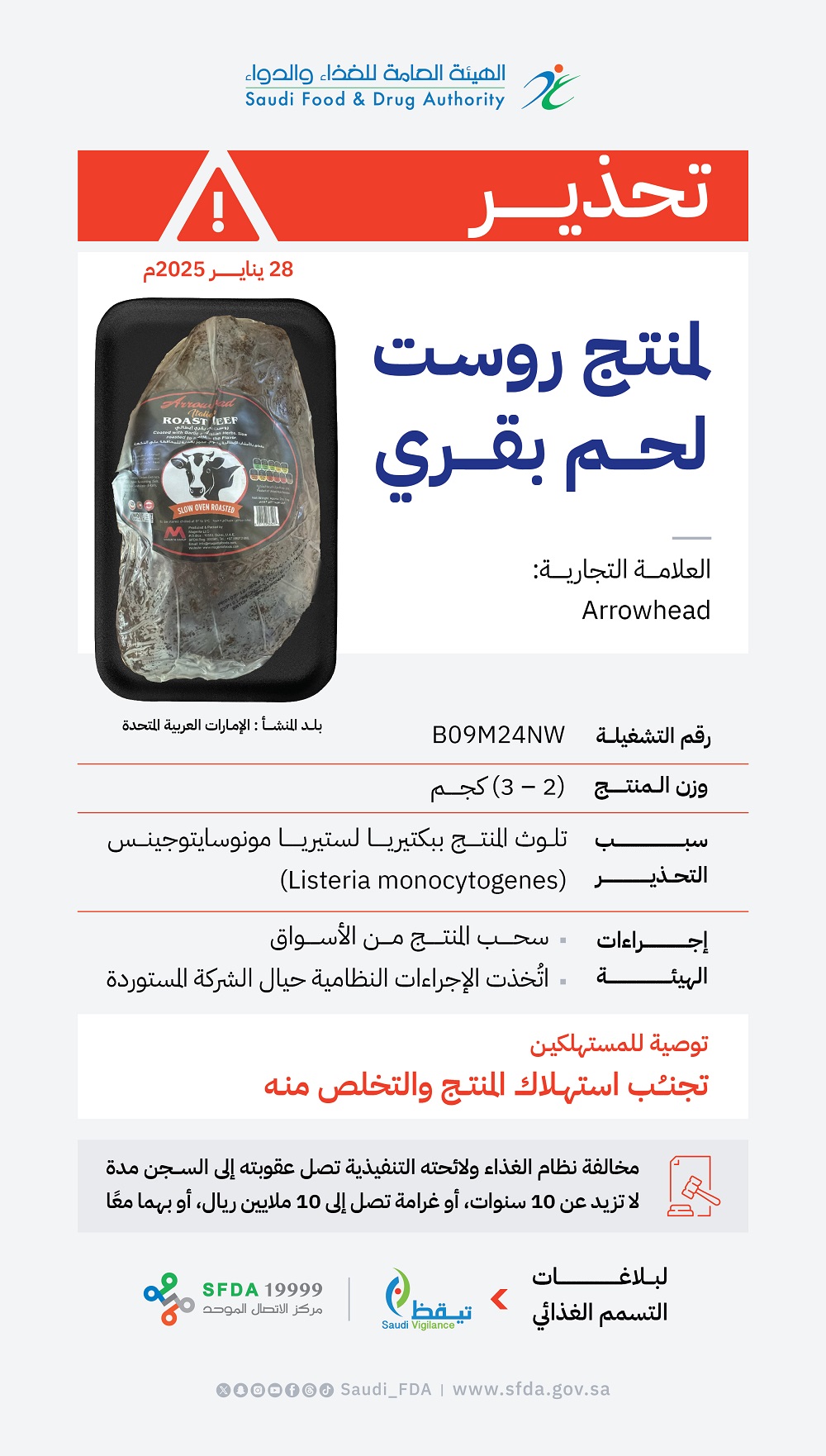
New Safety Information regarding the antidiuretic drug desmopressin (DDAVP® Spray and DDAVP® Rhinyle Solution)
2008-08-03
Ferring Pharmaceuticals, in collaboration with Health Canada, the Canadian counterpart to the Saudi Food and Drug Authority (SFDA), inform health care professionals that all intranasal formulations of Desmopressin including Desmopressin Acetate Nasal(DDAVP) Spray & Desmopressin acetate Rhinyle Solution (DDAVP) are no longer indicated for the treatment of Primary Nocturnal Enuresis (PNE) due to an increased risk of hyponatremia with the intranasal formulations.
Hyponatremia is a rare but serious, potentially fatal adverse reaction caused by water retention resulting from the potent antidiuretic effect of desmopressin. If unrecognized, hyponatremia can lead to seizures and death.
Worldwide post-marketing data indicate a higher incidence of hyponatremia in patients being treated with the desmopressin intranasal formulations compared to the oral formulations. Hyponatremia has been reported at a rate of approximately 5 cases per 10 million doses for nasal formulations and about 1 case per 10 million doses for oral formulations.
All intranasal formulations of desmopressin are now contraindicated for the treatment of PNE.
All patients using intranasal formulations of desmopressin for treatment of PNE should be reassessed to determine their need for continued treatment and to discuss other options. If ongoing treatment is considered necessary, patients should be switched to the lowest starting dose of an oral formulation, with the dose increased only if necessary to control symptoms.
New patients treated for PNE with desmopressin should only be prescribed an oral formulation.
Fluid intake and desmopressin dosage should be adjusted carefully in order to reduce the possibility of water retention and hyponatremia especially in very young and elderly patients or when significant daily variables occur such as hot climate conditions, intense exercise or other situations where increased water intake can be expected.
Prodromal symptoms such as headache, nausea or vomiting may herald impending hyponatremia. A patient treated with desmopressin for PNE and/or their guardian should be advised that if such symptoms occur, desmopressin should be discontinued and medical attention sought immediately.
Actions That Healthcare Professionals Should Follow :
· When desmopressin treatment is needed physicians should discuss with the patient and/or guardian the importance of limiting the amount of fluid intake one hour before taking the medication and during the 8 hours post dose.
· Bedwetting must not be treated with any nasal form of desmopressin (e.g., DDAVP® Spray, DDAVP® Rhinyle Solution). It must only be treated with desmopressin taken by mouth (e.g., DDAVP® Melt).
Information for Patients to Consider Regarding Nasal Desmopressin:
· If you or your child is currently taking a nasal form of desmopressin (Spray or Rhinyle) for bedwetting, you should talk to your doctor to see if you need to continue on desmopressin treatment. If continued treatment is necessary, you should be changed over to an oral form.
· If you are a new patient needing desmopressin treatment for bedwetting you should only be given an oral form.
· If you face a situation where increased water intake can be expected, for example; hot weather, after lots of exercise or during illnesses causing fever, you should seek advice from your physician. Your doctor will advise you on how to reduce the risk of side effects by monitoring fluid intake.
· Certain medications when taken with desmopressin have been associated with serious side-effects. Make sure you tell your doctor or pharmacist if you or your child takes other medications, for example anti-depressants or anti-inflammatory drugs.





